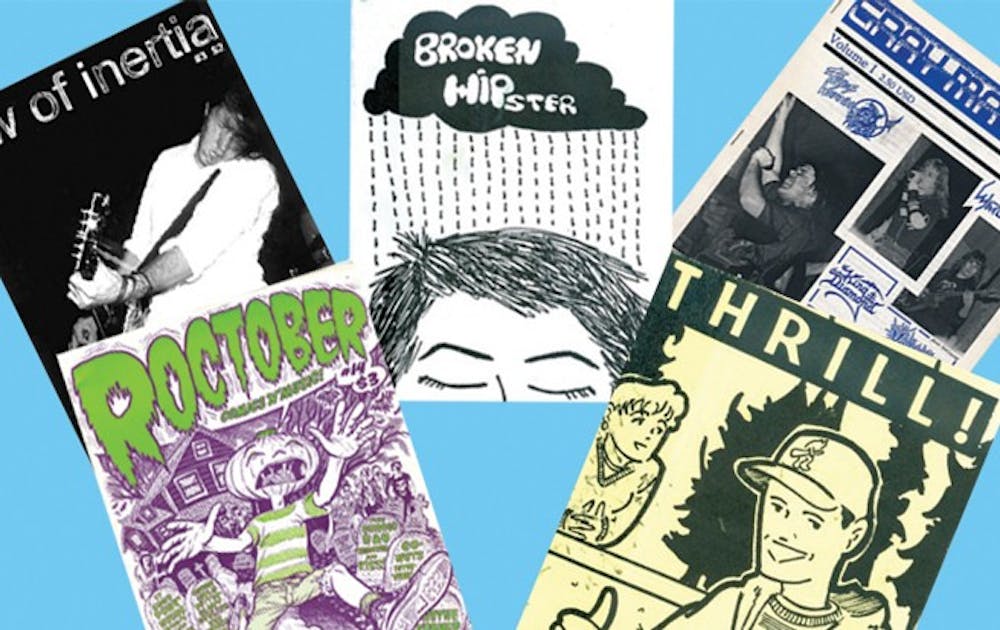A graduate student’s donation will expand Duke’s zine collection.
Dwayne Dixon, a former employee at the Center for Documentary Studies, has given his entire zine collection to the Sallie Bingham Center for Women’s History and Culture. Dixon first donated 110 zines as an employee at Duke but has added 68 zines to that collection as a current graduate student. Zines are self-published underground magazines that make up one of the center’s most popular collections, said Laura Micham, a curator for the center.
“The variety of zines is incredible, both in the way they look and the issues they engage,” said Micham. “They’re not glossy or professional like the magazines we’re used to—these have been assembled and Xeroxed and distributed by hand, but they’re still a very powerful communication device.”
Dixon’s donation includes a variety of zines on punk music, feminism and general activism from the 1980s and the 1990s.
Dixon, a doctoral student in cultural anthropology, became interested in zines as a New Jersey teenager involved in the punk scene. In the pre-Internet days, zines were one of the only ways to access information on alternative interests, he said.
“In the late ‘80s, early ‘90s, if you were interested in music, activism, weird art… there was no other way to find things out at a level below mainstream corporate production,” he said.
He said that discovering zines ended up being a life-changing experience because they exposed him to new ideas and perspectives.
“It made me feel not so isolated, knowing there were all these people like me—and all these people who weren’t like me, but had all these ideas I could really get down with,” Dixon said. “It was incredible as a straight, white boy to discover all these people my age from very different backgrounds, experiencing my America in very different ways.”
As he grew older and moved around the country, Dixon made sure to keep his zine collection intact because he felt personally responsible for their wellbeing.
He never thought anyone else would find his collection to be of much value, but a couple years ago, when Dixon worked at the center, he noticed a blurb in a newsletter regarding a zine donation to Duke from comic book artist Sarah Dyer.
The blurb surprised Dixon, who did not think an academic institution like Duke would have interest in zines. When he realized his collection might have worth to someone else, he donated enough to bring Duke’s zine collection to more than 5,000 volumes, Micham said.
The collection is sought out by scholars and students alike, she added, and is even assigned by faculty as coursework. Rachel Seidman, a visiting assistan professor of public policy, has used zines in her class, Women as Leaders, in order to look at zines in the context of feminist communication. Even with all of the academic interest in his zines, Dixon still views them in a more sentimental light.
“It’s a bit weird,” he said. “This is just my stuff, showing nothing but my personal journey, but it’s had a life way beyond what I or the zine authors could have imagined.”
Get The Chronicle straight to your inbox
Signup for our weekly newsletter. Cancel at any time.

